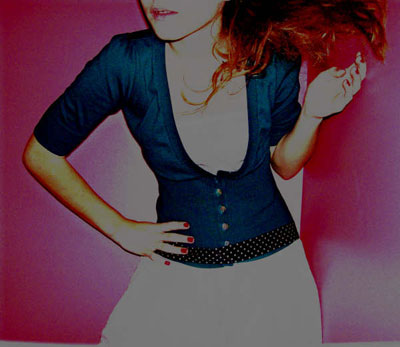All Nonfiction
- Bullying
- Books
- Academic
- Author Interviews
- Celebrity interviews
- College Articles
- College Essays
- Educator of the Year
- Heroes
- Interviews
- Memoir
- Personal Experience
- Sports
- Travel & Culture
All Opinions
- Bullying
- Current Events / Politics
- Discrimination
- Drugs / Alcohol / Smoking
- Entertainment / Celebrities
- Environment
- Love / Relationships
- Movies / Music / TV
- Pop Culture / Trends
- School / College
- Social Issues / Civics
- Spirituality / Religion
- Sports / Hobbies
All Hot Topics
- Bullying
- Community Service
- Environment
- Health
- Letters to the Editor
- Pride & Prejudice
- What Matters
- Back
Summer Guide
- Program Links
- Program Reviews
- Back
College Guide
- College Links
- College Reviews
- College Essays
- College Articles
- Back
Representation
Tell me representation of marginalized groups isn't important. Tell me, and I will gladly give you fifty different reasons why it is.
I can't use very good examples of race, or of disabilities, because I am white and I am abled. But here's where I differ from media's norm: I am agender, demisexual, and panromantic.
That's right. I identify as a lot of things that no one's ever heard of; I don't have a gender, I'm rarely sexually attracted to people, and when I am, I've known them very well for a long time, but I can be romantically attracted to anybody. But what if people had heard of those words?
Representation is important because, had there been non binary people in the books I read, I might have considered it as something I could be rather than saying, "I don't want a gender, but that's not possible."
Because if more people knew about my orientation, I wouldn't be forced to say, "Oh, I'm bi," because I don't want the questions around my actual sexuality. Even bisexuality raises questions.
Because, had there been bisexual and pansexual people in media, I wouldn't have assumed that "bisexual" was just another word for "gay", and of course I wasn't that, was I?
I wouldn't have repressed the fact that I was attracted to girls. I wasn't gay, right? I had had a crush on a boy! And even when I knew what being bisexual really meant, I thought of it as "weird" and "not me".
Because, if there were asexuals and graysexuals and demisexuals on television screens, I wouldn't have thought that I was strange for thinking of sex as a special thing, a thing to share with someone you actually love, and even then, maybe it's not a great idea, and not because of pregnancy issues, either.
Because I thought sexual orientation defined romantic orientation for most of my life, and I thought asexuality sounded "boring". But no, I was confusing it with aromantic (which still isn't boring!), and I was on the asexual spectrum, but I thought that was just kind of how everyone was.
Representation matters because, after coming out as agender on Facebook, two of my friends on there came out to me, and I don't think they would have had I not started the train.
Because had I ever seen openly non binary people, I would have had an example of what I was about to become.
Because if my parents had seen examples of people like me, they wouldn't have dismissed my gender as me just wanting to escape gender roles. They wouldn't have continued to call me "she." They wouldn't still refer to me as "girl," as "daughter," as "sister."
Because the first time I met a trans person, I messed up his pronouns nearly every time I talked to him for a few months. And his own parents called him "she" the first time I interacted with him. Would that have happened if there had been trans people in books or in my favorite TV show?
Representation matters because queer people aren't just for books written for straight people; queer people don't want their lives to revolve around their queerness. Queer people should be the protagonists of fantasy novels, of historical fiction, of mystery, of everything. No more realistic fiction revolving around the queerness of the character. More fiction of every kind, for every person, where characters just happen to be that way. Where they aren't seen as broken.
Where they, like me, exist.

Similar Articles
JOIN THE DISCUSSION
This article has 0 comments.
